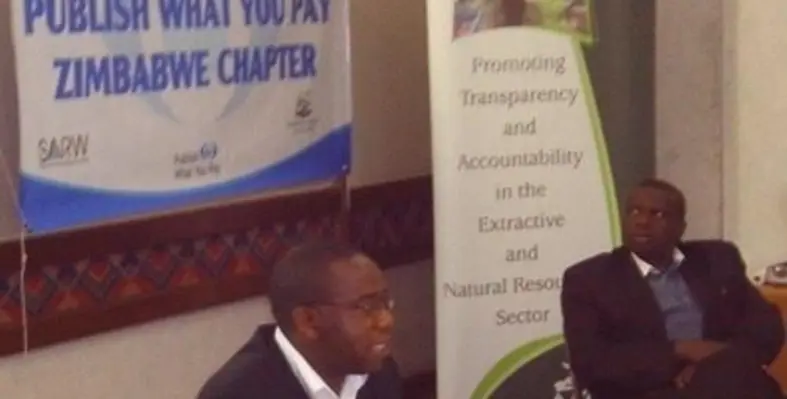Zimbabwe has launched the Publish What You Pay (PWYP) campaign local chapter as part of the global network of CSOs united in their call for extractive industry revenues to form the basis for development and improve the lives of ordinary citizens in resource-rich countries
The launch has been made by the Zimbabwe Environmental Law Association (ZELA) who have been advocating for reforms in Zimbabwe's extractive sector since 2009.
Mutuso Dhliwayo, Executive Director of ZELA says the reforms pertain to the need for improved transparency and accountability in revenue generated from mineral production,granting of mineral claims,engagement with mining communities,environmental management at mining sites,corporate social responsibility including mining contracting and licensing.
"The need for reform arises from the fact that there is very limited transparency and accountability in the mining sector.There is pervasive secrecy and opaqueness which results in very limited public knowledge of the benefits being derived from mineral production," says Dhliwayo.
lt is also reported that the absence of transparency and accountability is not a problem unique to Zimbabwe as it affects the whole of Africa.
"Despite billions of dollars of incoming revenues from oil,gas and mining extraction, Africa has remained steeped in poverty lending to what has been termed the natural resources curse or resource paradox," ZELA says.
Obscurity
ZELA adds that there is a high level of obscurity in the flow of mineral revenues in Zimbabwe.lt says that this is clearly illustrated in the diamond mining sector, particularly operations at Chiadzwa, in the Manicaland province.
The organization reports that there is confusion as to the whereabouts of over $300 million generated from mining operations in the Chiadzwa diamond fields.The minister of finance is reported to be on record stating that diamond revenues have not been handled transparently.
The minister in his 2011 national budget presentation highlighted cases of mining companies evading tax.
"The opaqueness extends beyond the mineral revenues. There is also very limited knowledge of diamond mining contracts as illustrated through the irregular licensing of Canadile (Pvt) Ltd to mine diamonds at Chiadzwa," ZELA says.
Cancelled licence
lt adds that the licence was eventually cancelled after it emerged that the company had misrepresented its capacity to mine diamonds and in effect prejudiced government of millions of dollars.
As part of its campaign to promote reforms in Zimbabwe's extractive sector, ZELA in collaboration with the Southern Africa Resources Watch (SARW) and the Revenue Watch Institute (RWI) has organized awareness meetings on issues besetting the extractive sector in Zimbabwe.This has been done under the Extractive Industries Transparency Initiative (EITI).
The PWYP campaign is a global network of over 600 member organizations in more than 30 countries that are united in their call for extractive sector revenues to form the basis for development and improve the lives of ordinary citizens in resource-rich countries. PWYP undertakes public campaigns and policy advocacy to achieve disclosure of information about extractive industry revenues and contracts.
The next initiatives of the Zimbabwe PWYP campaign will include ZELA and other founding partners mobilizing membership to include a broad cross section of civil society organisations with an interest in the extractive sector, launching the chapter and generating publicity on the campaign and extractive sector issues,developing the founding documents which include memorandum of understanding,vision and key focus areas and also developing an advocacy or campaign strategy or work plan for the chapter.
Payment disclosure
PWYP calls for the disclosure of payments by extractive companies to the government of each country in which they operate, revenues earned by governments from the oil, gas and mining sectors, licencing arrangements and extractive industry contracts and other information critical to monitoring the deals made between extractive companies and governments.
Itai Zimunya, Open Society Initiative for Southern Africa (OSISA) Zimbabwe Programme Manager said at the launch the initiative is an economic justice necessity for thousands living in poverty. He added that this will help to eradicate the enclave mentality benefitting a few elites in the resource-rich nation.
Wallace Mawire












